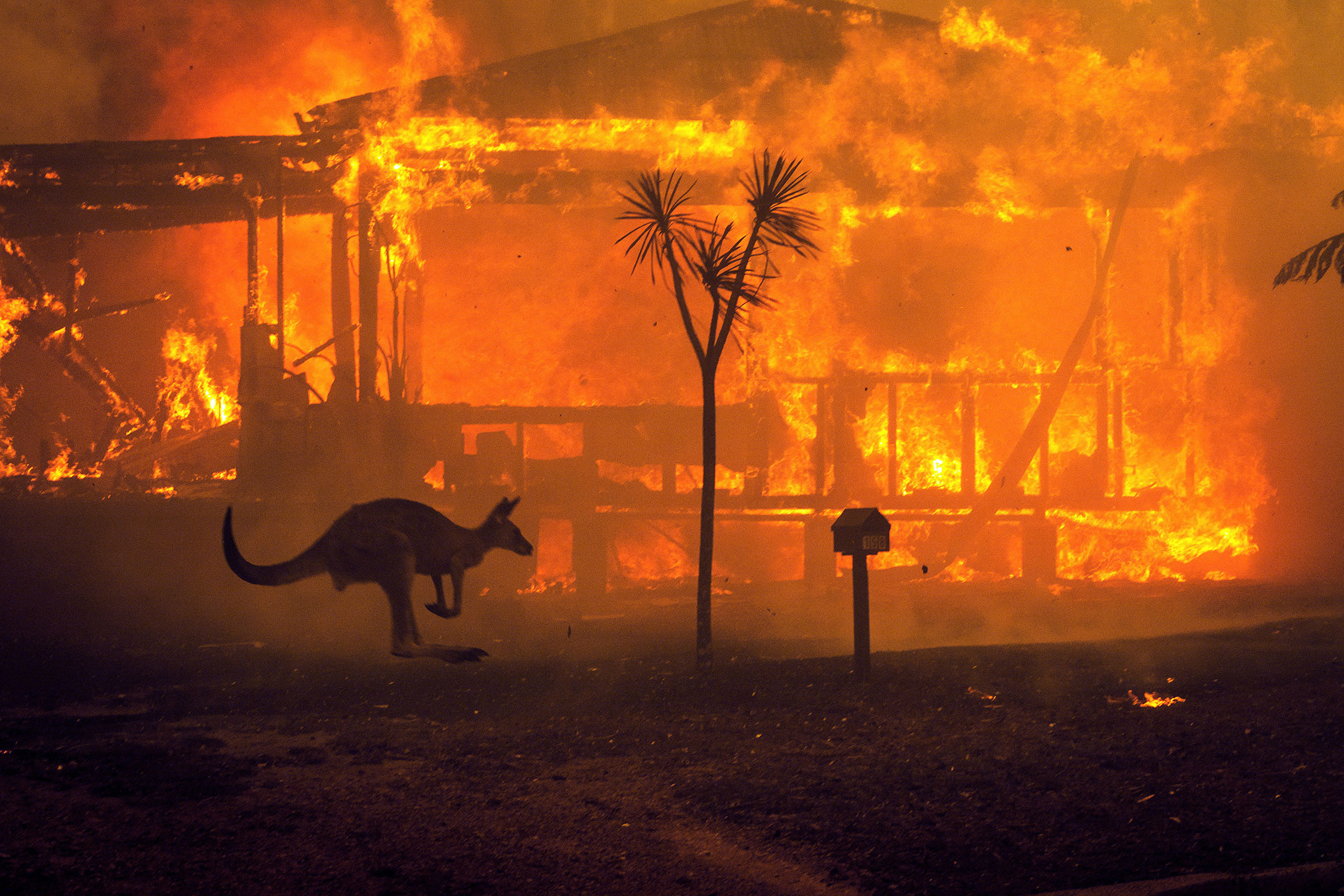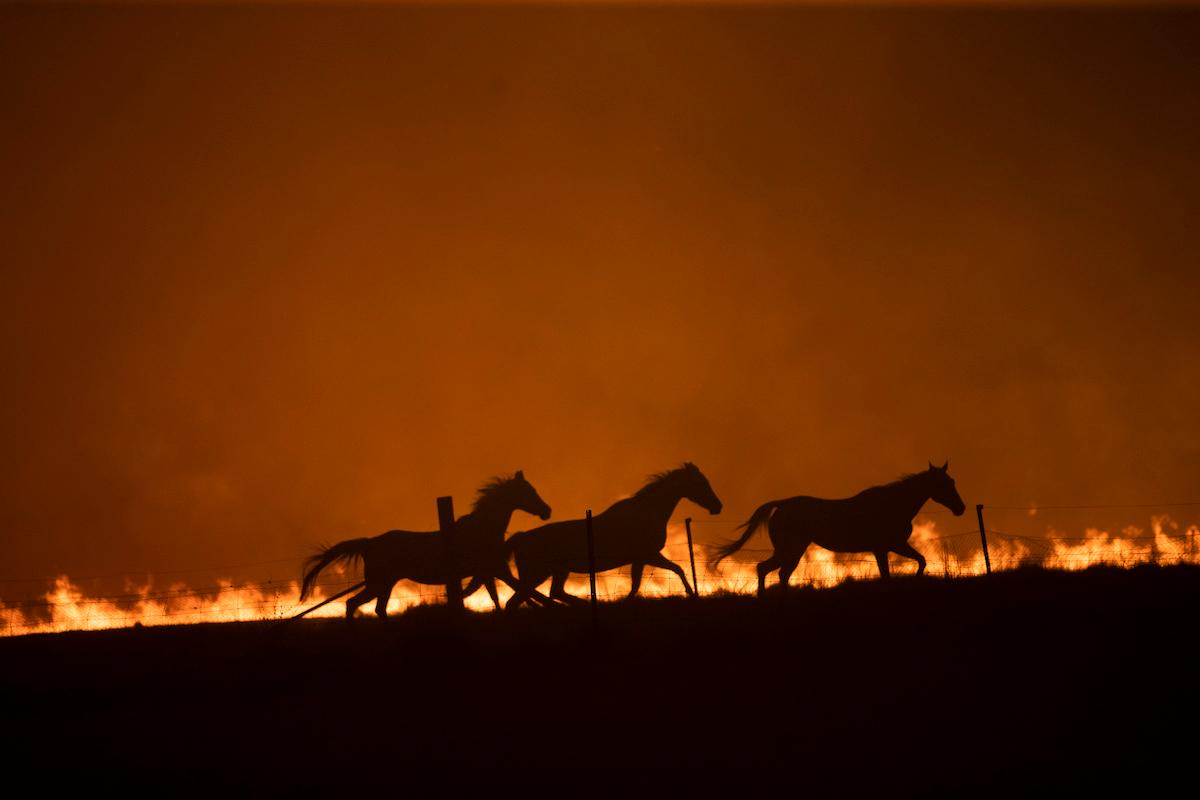Trigger Warning: Discussion of events some might still find distressing.
Eva Orner holds a frank, unflinching mirror up to the Black Summer bushfires, pondering some uncomfortable questions that many Australians have been asking themselves since 2019. This is difficult to recommend as a piece of “entertainment” but it is urgent, vital film-making that every Australian who is concerned with the future of our country should watch.

The film begins with a look at the past: Greg Mullins’ history with bushfires, beginning as a child in the early 1970s. After helping his father and their community to beat the fires of 1972, he decided to dedicate his life to fighting fires then and there. Climbing the ranks after formally joining FRNSW in 1978, he was eventually appointed Commissioner in July 2003, a position he held until his retirement in January 2017. Throughout his tenure, he mentions that the instances of major fire events – the kind of catastrophic conditions that led to Black Summer – had increased exponentially since the 1970s, from instances every five or ten years, to every two or three.
Orner uses this anecdotal evidence as a framing device for what is to come. What follows is a considered look into the circumstances that led to the Black Summer bushfires – in particular, it indicts a government that for years has willingly buried its head in the sand when it comes to the warning signs of climate change. From Morrison’s speech when he was still treasurer where he accused the Labor party of being “afraid” of coal, to his current tenure as prime minister and his recent doubling down on our reliance as a nation on fossil fuels, the Coalition’s continued laissez-faire attitude towards the looming global climate crisis is an undeniable source of frustration.
Black Summer’s Impact
Most of the film’s runtime is dedicated to the impact on the population the bushfires wrought – in particular remote communities that were virtually destroyed by a relentless firefront. We are taken inside the life-or-death scenarios faced by residents of Cobargo (NSW) and Mallacoota (Victoria), talking to residents who were lucky enough to make it through these events.
The footage at times is confronting and difficult to watch – especially as it relates to the death of billions of native animals. This is confirmed by the likes of Mullins as something entirely new for bushfires in this country. Traditionally our animals have evolved over millions of years to know what to do when fire season comes around, but the unprecedented ferocity of the black summer fires was too much for these animals.
Impact on People & Resistance

As well as the massive animal death toll, black summer claimed 25 human lives. But this was far from the only impact on people. One of the most striking interviews is with Michael Harrington, a young man from Victoria, who discusses the fact that an act as simple as looking up at a ridge on a hazy day can trigger PTSD-like memories of seeing the fires approach. Another couple from Wollongong detail their difficulties at the time with their child – due to smoke inhalation on the part of the mother, they were forced to induce labour early, and the baby was born with respiratory issues. Wollongong is 200 kilometres from the Cobargo front.
Bleak though much of the storytelling is, it does have a streak of hope running through it, primarily through the actions of the Strike for Climate group. Made up primarily of school children and inspired by Greta Thunberg, the Australian rally for this cause had 300,000 marching the streets of Sydney. Of course, the Murdoch media and the government minimised the reasons for their protest, instead choosing to focus on the fact “they should be in school.”
“What we want is more learning in schools and less activism in schools.” – Scott Morrison
No Easy Answers
Personally, I found the experience of viewing Burning a rather uncomfortable one – but this is not a bad thing. Although it made me at times both sad and angry, these are the emotions that can be the most motivational in regards to taking the steps towards changing something. And this is why I think this film is essential viewing – the science is clear. Despite the best efforts of conservative powers-that-be, denying the impact of climate change on our continent is no longer an acceptable course of action.
Watching Burning will boil your blood and rattle your bones. And while it points the finger squarely at a government whose continued inactivity has in many ways put us at risk, it stops short of actively condemning us. Orner balances many threads and views the climate crisis from different perspectives, including environmental, moral, political and social. What it is more than anything else is a call to action. It asks us to look at the actions of our elected officials, the agendas of those who report our news, and the findings of scientists. And to realise that if we continue down the path we have set for ourselves, we are putting ourselves and future generations in serious jeopardy.
Burning is streaming on Amazon Prime now.
Subscribe to FIB’s Weekly Breaking News Report for your weekly dose of music, fashion and pop culture news!







